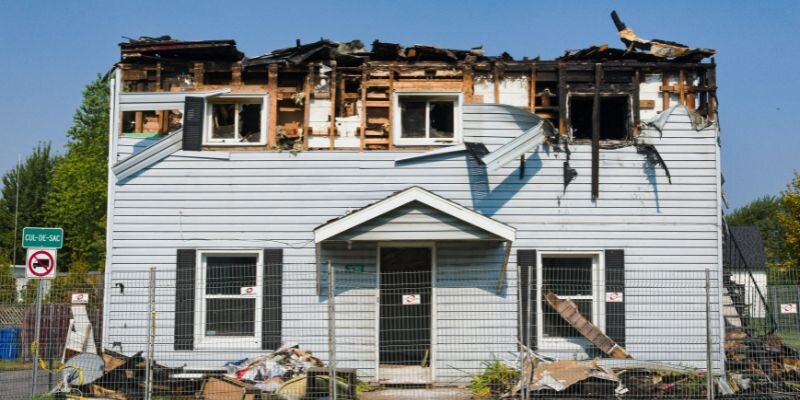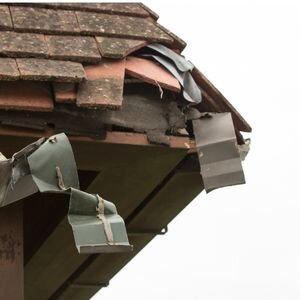
Selling a House in Poor Condition: A Comprehensive Guide
It can be hard to sell a house in Illinois that isn’t in good shape, but if you do it right, you can get the most money for it without having to do expensive renovations. Knowing about the local real estate market is important since it helps you set a fair price that represents the property’s condition and draws in potential buyers.
Highlighting unique features or potential renovation opportunities can also appeal to investors or first-time homebuyers looking for a project. Marketing strategies are pivotal; leveraging online platforms such as real estate websites and social media can provide wider exposure to cash buyers or investment groups specializing in distressed properties.
Working with an experienced real estate professional who knows how to sell homes in bad shape will help you negotiate and market your home in a way that works for this market. Offering flexible terms, such as creative financing choices, might also attract more bidders who see value beyond the house’s current condition.
By focusing on these strategies, homeowners can successfully sell their property in Illinois despite its poor condition while aiming for a favorable financial outcome.
Navigating the Illinois Real Estate Market for Distressed Properties
It might be hard to sell a house in Illinois that needs a lot of work, but knowing how the state’s real estate market works for distressed houses can help you make the most money without spending a lot on renovations. First, it’s important to research the local real estate market and sales of similar distressed properties in Illinois. A Team Real Estate Solutions can help by offering expert insights, a network of ready buyers, and tailored solutions for selling your home as-is, saving you time, reducing stress, and helping you secure a fair cash offer without costly repairs.
Partnering with a knowledgeable real estate professional who specializes in selling homes as-is can offer invaluable information about pricing strategies that attract cash buyers and investors looking for fixer-uppers. Emphasizing the property’s potential, like its location or lot size, rather than its current state, can make it more attractive.
Marketing your house effectively by emphasizing its investment opportunities is key; this includes using online platforms and local networks that cater to buyers interested in rehabbing projects. Additionally, transparency about the property’s issues and showcasing any redeemable features can build trust with prospective buyers.
Knowing the rules and disclosure requirements for selling homes in disrepair in Illinois makes sure that you follow the law and makes the transaction go more smoothly.
Legal Considerations When Selling a Damaged Home in Illinois
Understanding the legal considerations when selling a house in poor condition in Illinois is critical for guaranteeing a smooth transaction. First, sellers must disclose any known defects or issues with the property as required by the Illinois Residential Real Property Disclosure Act.
This includes problems with the structure, the plumbing, and any past flooding or water damage. Not giving complete information can cause legal issues or even the sale being canceled.
Additionally, it’s worth considering zoning laws and local ordinances that might affect the sale of a damaged home. Working with a real estate attorney familiar with Illinois law can help navigate these complexities and ensure compliance with all necessary regulations.
Sellers should also know about buyers’ rights in Illinois, which may include certain remedies if major problems that weren’t disclosed are found after the transaction. Sellers who know these legal requirements are less likely to be sued, and buyers frequently wary of buying properties that need repairs will trust them more.
Understanding Home Valuation for Houses in Disrepair

Understanding home valuation is crucial to maximizing profit when selling a house in poor condition in Illinois. The value of a distressed property depends on various factors, such as location, the extent of disrepair, and current market conditions.
In Illinois, appraisers consider comparable sales of similar properties that require repairs to determine an accurate valuation. Homeowners should conduct thorough research or consult real estate professionals to understand how unique attributes like structural issues or outdated systems impact the sale price.
Identifying key features that may still add value, such as land size or desirable neighborhood traits, is essential. Additionally, knowing the potential after-repair value (ARV) can help sellers set realistic expectations and attract cash buyers who specialize in renovating homes.
By gaining insight into these valuation dynamics, sellers can strategically position their properties in the market and negotiate better offers without resorting to costly repairs.
Preparing Your Illinois Property for Sale Despite Its Condition
Maximizing your profit when preparing a house in poor condition for sale in Illinois requires strategic planning and presentation. Start by thoroughly cleaning the property to enhance its appeal despite structural issues.
Eliminate excess items from each area to foster an atmosphere of spaciousness and openness. This will enable prospective buyers to imagine possibilities rather than concentrating on the home’s condition. To refresh spaces without substantial expenditure, utilize moderate paint hues on well-maintained walls.
Address minor repairs such as leaky faucets or broken fixtures, which can make a big difference in buyer perception with minimal cost. Stage the home with simple, well-placed furniture and decor to highlight its best features and downplay areas needing improvement.
Use natural light by making sure windows are clean and not blocked. This will make the room feel more welcoming. Also, sidewalk appeal is significant. Keeping the lawn neat or adding some cheap landscaping can make the house look better from the street.
By showing off its potential and highlighting its charm, you can attract motivated buyers who see value in your Illinois home even though it has some flaws.
Effective Marketing Strategies for Homes Needing Repairs
When selling a house in poor condition in Illinois, implementing effective marketing strategies is crucial to attract the right buyers and maximize profit without making repairs. Start by emphasizing the property’s potential, highlighting unique features that could appeal to investors or cash buyers looking for fixer-uppers.
Use high-quality photographs that capture the home’s character while being transparent about its need for renovations. Consider targeting real estate investors, contractors, or first-time homebuyers interested in renovation projects through online platforms and local real estate investment groups.
Buyers who see value in turning a run-down property into their dream home or a profitable business may be interested in compelling listings that use descriptive language. Also, setting a competitive price for the house will get people interested and make them feel rushed to buy it if they see the chance to add value by making changes.
Partnering with an experienced real estate expert familiar with distressed properties can also enhance your marketing efforts by reaching a broader audience and leveraging their network of contacts interested in buying homes that need work.
Tips for Negotiating with Buyers of Fixer-upper Homes
When talking to buyers in Illinois about fixer-upper homes, it’s essential to be honest about the property’s current state while also pointing out what it could be. Start by focusing on the house’s unique qualities and any great things about it, like a great setting or old-fashioned charm that could appeal to people looking for investments.
Understanding the local real estate market is crucial when selling a house with termite damage or any other damage repair needs. Researching comparable sales of similar homes in poor condition is essential to set a realistic price that reflects the home’s shortcomings and its potential value after renovation. Be prepared to discuss common repair costs and offer reasonable estimates so buyers clearly understand what their investment may involve.
To sweeten the deal even more, you can offer the seller concessions like paying the closing costs or giving them a home warranty. This way, you don’t have to pay for fixes up front. Being flexible during talks can help you get better results. If someone makes a counteroffer that includes good terms and a price closer to your goal, you might want to consider accepting it.
You can make the most money when selling a house that isn’t in perfect shape, as long as you communicate clearly and show that you’re ready to work with potential buyers.
Financial Options and Assistance for Repairing Homes Before Selling
When selling a house in poor condition in Illinois, exploring financial options and assistance programs can significantly enhance your ability to maximize profit without shouldering the full burden of repairs. Homeowners might consider leveraging home improvement loans or lines of credit designed for property renovations.
These types of loans usually have lower interest rates, which makes them a good choice for paying for fixes that need to be done before the house is put on the market. Illinois also has many state and neighborhood grants to help homeowners improve their homes. These grants can pay for new roofs, plumbing, or energy-saving features.
Specific nonprofit organizations also aid eligible sellers aiming to revitalize homes in disrepair, potentially increasing market appeal and reducing time on the market. Specialized programs may offer further financial support or tax incentives for veterans and low-income families to facilitate home upgrades.
A knowledgeable real estate professional who knows about these resources can help you find the best solutions for your financial circumstances while increasing the property’s worth before selling it.
Highlighting Potential in Properties That Need Renovation
When you’re trying to sell a bad house in Illinois, it’s important to stress how valuable the property could be, even though it needs work. Focusing on the unique features and options can attract buyers looking for investment or fixer-uppers.
Please pay attention to the property’s location, like how close it is to schools, parks, or public transportation. This can make it more appealing even though it’s in bad shape. Talk about the house’s strong structure or any charming architectural features that could be fixed with imagination and work.
Show how improvements have made similar homes in the neighborhood much more valuable. You can get buyers interested in a distressed property who are willing to put in the time and money to turn it into their dream home by showing them how the house could look after some strategic changes.
This method widens your pool of potential purchasers and makes your home look like a good investment in the Illinois real estate market without needing repairs immediately.
Working with Real Estate Experts Specializing in Distressed Sales
When selling a house in poor condition in Illinois, working with real estate professionals specializing in distressed sales can be highly beneficial. These agents have the expertise to navigate the complexities associated with properties that require significant repairs or renovations.
They understand the local market dynamics and are skilled at marketing such homes to investor home buyers in Illinois looking for fixer-uppers. By partnering with an agent experienced in distressed sales, sellers can effectively position their property to attract competitive offers without making costly repairs.
These experts frequently have networks of cash buyers and investors ready to buy properties. This lets sellers get the most money for their homes while spending the least time on the market. They also give helpful advice during the whole sales process, from coming up with pricing strategies for distressed properties to getting the best deal for the seller.
These real estate brokers know the laws and rules about disclosures that apply to Illinois, so they can make sure the sale goes smoothly, even if the house isn’t in great shape.
Avoiding Common Pitfalls When Selling a Home As-is
When selling a house in poor condition in Illinois, maximizing your profit without making repairs requires careful attention to common pitfalls. One major mistake is overpricing the property; setting a realistic price that reflects the home’s current state is crucial.
It’s important to know this market segment since purchasers in Illinois who want as-is properties are usually investors or first-time buyers searching for a good deal. Also, not telling people about problems you know about might get you in trouble with the law. Being open and honest develops trust and helps keep deals from falling through.
Another standard error is neglecting curb appeal; even minor improvements like cleaning the yard or painting the front door can significantly attract potential buyers. Working with a company that buys homes in Oak Lawn ensures you navigate these challenges effectively, leveraging their knowledge to market your home strategically.
Finally, being open to talks and terms can help finish agreements quickly, which is suitable for purchasers who see potential value in the property even when it has problems.
Attracting Investors to Purchase Fixer-upper Properties
When looking to sell a house in poor condition in Illinois, attracting investors interested in fixer-upper properties can be a strategic move to maximize your profit without undertaking repairs. Investors often look for undervalued properties with potential, making them ideal buyers for homes requiring significant renovations.
To attract these investors’ attention, you should stress the property’s position, structural soundness, and possible return on investment after improvements. You can also give investors thorough information about the local real estate market trends and similar sales to persuade them of the property’s upside potential.
Online platforms targeting real estate investors can further increase visibility among prospective buyers. Offering flexible terms or expedited closing options might attract those eager to capitalize on a promising opportunity quickly.
Focusing on these tactics will help sellers market their distressed properties to investors who can see value beyond the current state of the property.
Staging Tips for Homes That Can’t Be Fully Repaired

In Illinois, staging a house that needs a lot of work can make it look much better without spending a lot of money on renovations. Focus on removing things you don’t need to make each room feel bigger and cleaner. This will help potential buyers picture what the property may be like.
Focusing on the property’s unique features, like the original woodwork or old fixtures, can help hide its flaws. Neutral paint colors will make any room look brighter, bigger, and friendlier.
Putting furniture in the right place can help define rooms and make them look more useful, even in old or worn-out places. It’s also important to have enough lighting. Check that all the bulbs work, and consider adding lamps to dark areas to light them up.
Adding simple touches like new curtains or modern throw rugs can bring new life to old rooms without spending a lot of money. Adding some greenery with flowers or plants in pots can also make a space feel more welcoming.
These staging techniques try to get the most money by drawing attention away from the house’s flaws and focusing on its beauty.
Impact of Local Market Conditions on Selling Unrenovated Homes
Understanding the impact of local market conditions is crucial when selling a house in poor condition in Illinois. The real estate market in Illinois can vary significantly from one region to another, influencing how potential buyers perceive unrenovated homes.
When more people are looking for homes than homes for sale, even homes that aren’t in the best shape can get multiple offers. If, on the other hand, there are a lot of properties for sale, it might be hard for sellers to get rid of an unrenovated home without lowering the price or giving incentives.
Local economic factors such as employment rates and population growth also play pivotal roles, as they affect the pool of prospective buyers who might be willing to invest in a fixer-upper. Additionally, neighborhood trends and school district ratings can either enhance or diminish the appeal of a home that hasn’t been updated, making it essential for sellers to conduct thorough research on current market dynamics.
Knowing these local details helps sellers set the right price for their homes and market them to the right people, no matter what condition they’re in.
Crafting an Appealing Listing Description for Challenging Properties
If you want to sell a house in Illinois that needs a lot of work, it’s crucial to write a good listing description that will attract people’s attention and help you make the most money without fixing it up. Please discuss the property’s distinctive qualities and prospects, such as location, lot size, or historical significance, that might make it more appealing to purchasers.
Employ descriptive language to vividly depict the home’s charm and potential, even if it requires creativity. Emphasize any recent updates or improvements, such as a new roof or updated plumbing, no matter how minor.
Be honest about the state of the home while highlighting how it could be changed or improved. Talk to buyers about how it could be used as a fixer-upper project or as a rental property.
Draw attention to how close the property is to important things like schools, parks, public transportation, and shopping malls. By focusing on these good points in your offering description, you can attract buyers looking for unique homes that could increase in value, even if they are in bad shape right now.
Understanding Buyer Psychology for Distressed Property Sales
When selling a house in bad shape in Illinois, it’s essential to know how buyers think so that sellers can plan their sales to make the most money. People who want to buy distressed properties are usually investors or people searching for a deal. They typically wish to own homes they can fix up and sell or rent out.
These buyers care more about the property’s potential worth and location than its appearance. To get their attention, you may highlight the property’s distinctive features, including how close it is to amenities or how big its lot is. Also, being honest about the home’s state might help create trust with potential buyers who are used to weighing the pros and cons of buying a fixer-upper.
Emphasizing any structural strengths of the property, like solid foundations or recently updated systems (electrical, plumbing), can reassure buyers of the property’s viability for investment. Understanding these motivations allows sellers to tailor their marketing strategy effectively, showcasing the prospects of high return on investment post-renovation rather than focusing solely on existing flaws.
Sellers can get an advantage in the competitive Illinois real estate market for distressed properties by tailoring their sales pitch to appeal to this buyer demographic. This includes highlighting the properties’ value, potential, and investment opportunities.
The Role of Inspections and Appraisals in Selling As-Is Homes

When selling a house in poor condition in Illinois, particularly as it is, understanding the role of inspections and appraisals is crucial for maximizing profit. Inspections provide potential buyers with a clear picture of the property’s current state, highlighting any structural issues or necessary repairs.
This can help buyers trust you more when they know they are buying the house “as is.” The market worth of a home, on the other hand, is determined by comparing it to similar homes in the area and considering its condition.
For sellers aiming to maximize profit without making repairs, obtaining a realistic appraisal is essential in setting a competitive price that reflects the property’s potential and shortcomings. While an as-is sale might attract investors or cash buyers looking for fixer-uppers, an inspection report can be a tool for negotiating offers more effectively.
Even if a home is in bad shape, sellers in Illinois can improve their chances of making a profit by paying attention to these details.
Leveraging Online Platforms to Sell Homes Needing Tlc
Selling a house in poor condition in Illinois can be challenging, but leveraging online platforms effectively can help maximize your profit without costly repairs. Start by listing your property on popular real estate websites that cater to homes needing TLC, such as Zillow, Realtor.com, and Redfin.
These platforms allow you to reach a broad audience of potential buyers looking for fixer-uppers or investment opportunities. Highlighting the property’s potential and unique features can attract investors or DIY enthusiasts eager to take on a project.
Utilize high-quality photos that accurately represent the home’s current state while emphasizing its possibilities for renovation or redevelopment. Consider creating virtual tours to give prospective buyers a comprehensive view of the layout and space, which can help them envision future improvements.
Engaging with social media platforms like Facebook Marketplace or local real estate groups can also increase visibility among community members who may be interested in purchasing properties that require some work. Providing detailed descriptions, including information about the neighborhood, nearby amenities, and any positive aspects of the location, can further entice potential buyers who see value beyond the home’s current condition.
Who Is Liable If Defects Are Found After a Home Inspection in Illinois?
Understanding liability for defects discovered after a home inspection is crucial when selling a house in poor condition in Illinois. In Illinois, sellers are required to disclose known material defects through the Residential Real Property Disclosure Report.
However, if new issues are uncovered during the home inspection, the seller’s liability may depend on whether these defects were previously undisclosed or unknown. Sellers must be transparent about the property’s condition to avoid potential legal complications.
Buyers typically conduct inspections to identify any hidden problems and can negotiate repairs or price adjustments based on findings. Illinois real estate laws could hold them liable if the seller discovers defects after the sale that they did not disclose but knew about.
To protect themselves, sellers should consider consulting a real estate attorney and ensuring all disclosures are thoroughly completed before listing their property.
| STATE OF ILLINOIS | COMPANY | LAWYERS | MLS | INSPECTOR | LENDER |
| MORTGAGE | MORTGAGE LENDERS | HOMEOWNER’S INSURANCE | FEES | INVESTMENT PROPERTIES | HOUSE PRICES |
| HOME INSPECTOR | HOME INSPECTIONS | FSBO | FOR SALE BY OWNER | DRINKING WATER | CUSTOMER |
| CONSUMER | BETTER BUSINESS BUREAU | BETTER BUSINESS BUREAU (BBB) | UNITED STATES | TERMITES | MONEY |
| HEATERS | HVAC | CHICAGO | BASEMENT | WATER HEATERS | SOIL |
| WATER PIPES | PAYMENT | THE NATIONAL ASSOCIATION OF REALTORS | NAR | MOLD | LEAKAGE |
| HEALTH | DOLLAR | DIVORCE | DATA | BIT | SELL MY HOUSE |
| WE BUY HOUSES | A HOUSE ASIS | A CASH BUYER | SELL YOUR HOUSE | A HOUSE AS | HOUSE AS IS |
| THE COST OF | YOUR HOUSE FAST | A CASH OFFER | SELL MY HOUSE AS | MY HOUSE AS IS | SELL YOUR HOUSE AS |
| TO SELL YOUR HOUSE | SELL A HOUSE ASIS | I SELL MY HOUSE | SELL A HOUSE, ASIS | A REAL ESTATE AGENT | SELL YOUR HOUSE FAST |
| TO A CASH BUYER | TO SELL MY HOUSE | SELL MY HOUSE FAST | A HOUSE AS IS | SELLING A HOUSE AS | THE COST OF THE |
| HOUSE FAST FOR CASH |
